Three PBT Master’s Students Participate in the SAKURA Science Program at the University of Tokyo to Address the Social Divide through Bioresources
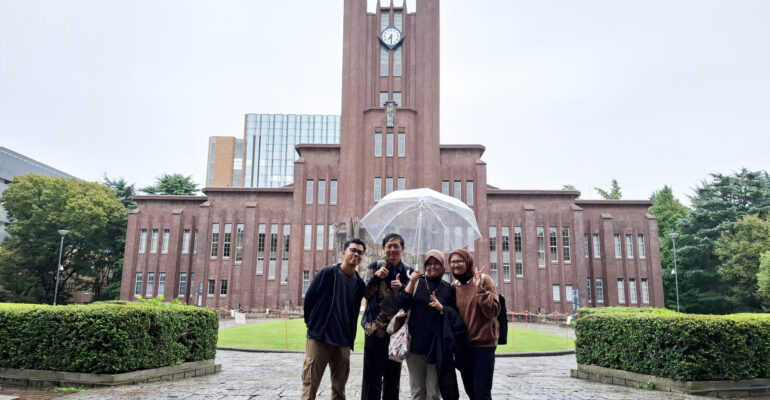
Three PBT Master’s Students Participate in the SAKURA Science Program at the University of Tokyo to Address the Social Divide through Bioresources
Three master’s students from the Plant Breeding and Biotechnology study program (Graduate School, IPB University), M Reza Pahlevi, Marisa Vidya Luthifiani, and Ramadaniarto Rizqullah, recently represented Indonesia in the prestigious SAKURA Science Program. Held at the University of Tokyo from October 20–26, 2024, this program, organized by the Asian Research Center for Bioresource and Environmental Sciences (ARC-BRES), brought together 14 participants from nine Asian countries. The SAKURA Science Program serves as an important platform for students across Asia, including participants from Vietnam, the Philippines, Malaysia, China, Thailand, India, Pakistan, and Japan, to delve into the fundamentals of bioresource and environmental sciences and to explore how science and technology can bridge social divides.
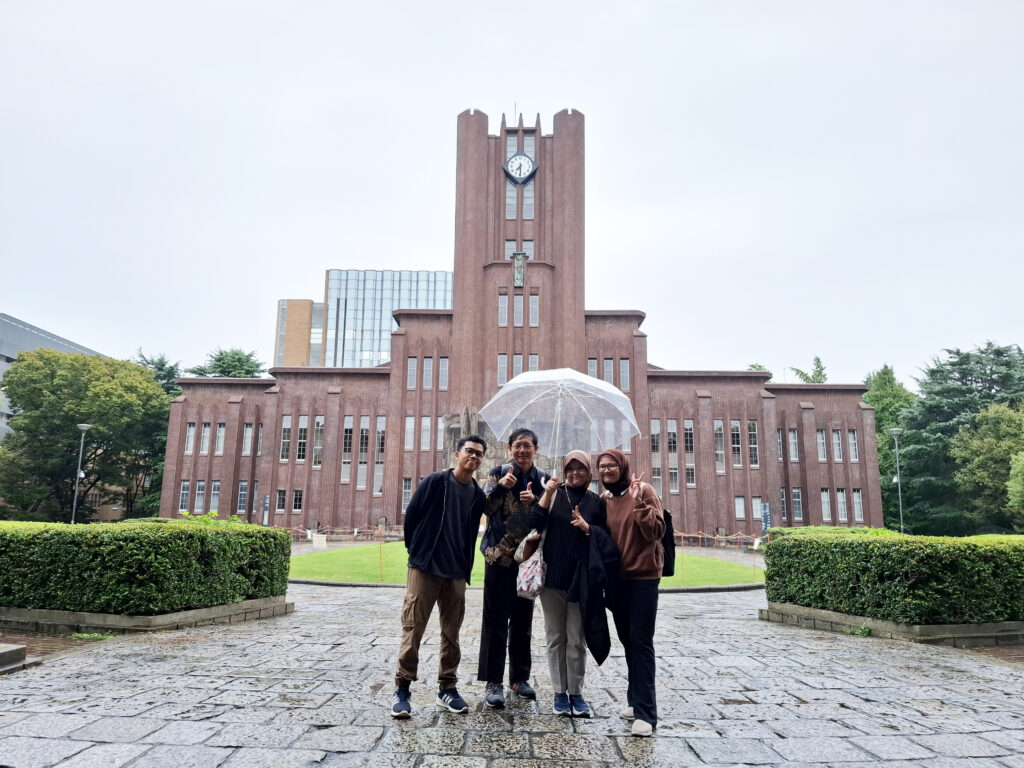
This year’s program continued a fruitful academic collaboration between Dr. Sintho Wahyuning Ardie and Assoc. Prof. Dr. Daisuke Tsugama, who visited the Department of Agronomy and Horticulture last May. Dr. Tsugama is a collaborator of Dr. Sintho, who supervised the three students during the program. While the students participated in the hands-on exercises, presentations, and laboratory visits, Dr. Sintho herself was actively involved in research alongside Dr. Tsugama in his laboratory, fostering international scientific exchange.
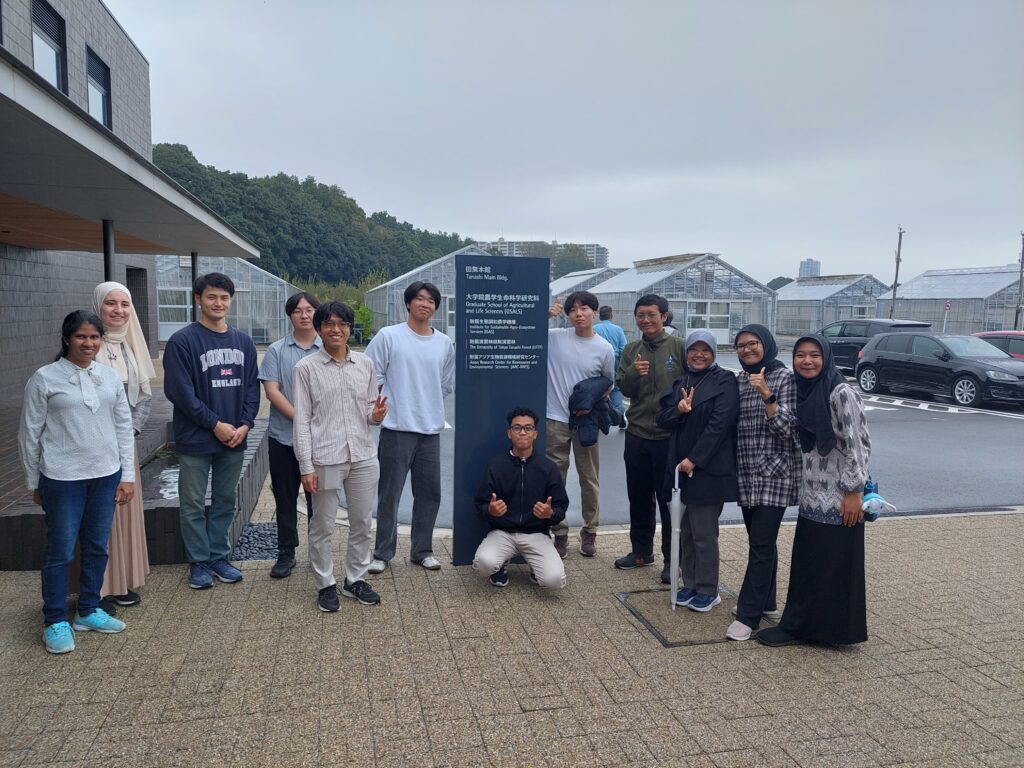
The SAKURA Science Program is structured around four key research areas within the field of Bioresource and Environmental Sciences. Each area focuses on innovative scientific solutions to pressing environmental and social challenges, including (i) Vegetation Rehabilitation and Stress Adaptation, (ii) Physiological Ecology of Harmful Microalgae, (iii) Sustainable Crop Production, and (iv) Genome Editing. The students’ experience involved practical exercises, research presentations, and visits to various facilities within the Graduate School of Agricultural and Life Sciences, providing hands-on exposure to state-of-the-art bioresource research.
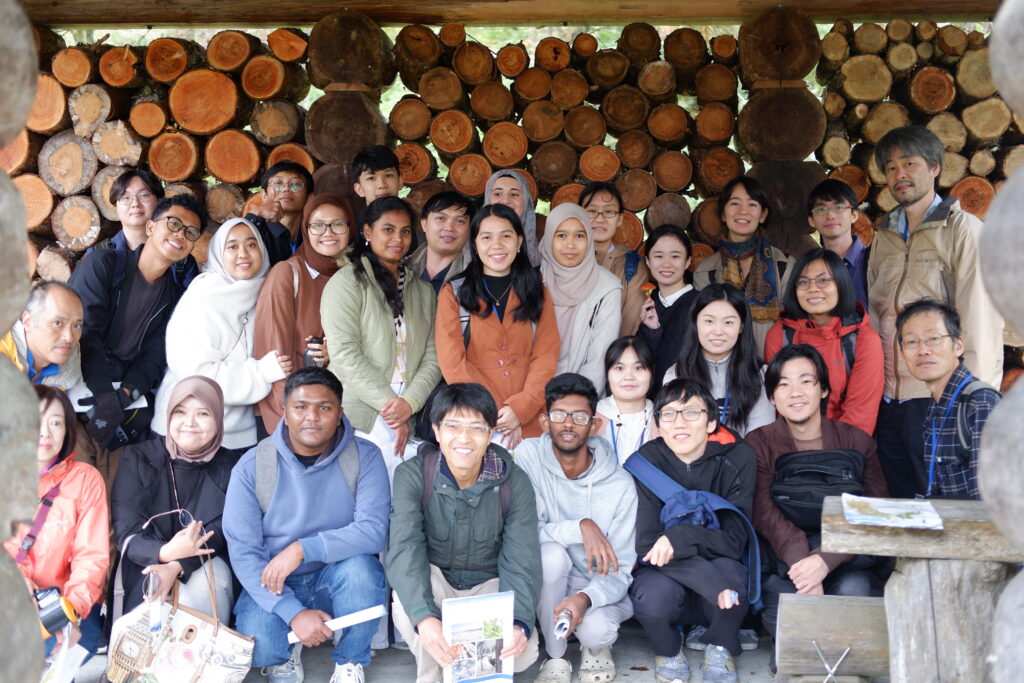
Following the main program, Dr. Sintho and one of the students, M Reza Pahlevi, extended their stay in Tokyo until October 28, 2024. During this period, they conducted in-depth in silico analyses of Whole Genome Sequencing and RNA-seq data in collaboration with Dr. Tsugama, further strengthening the academic ties between the University of Tokyo and IPB University.
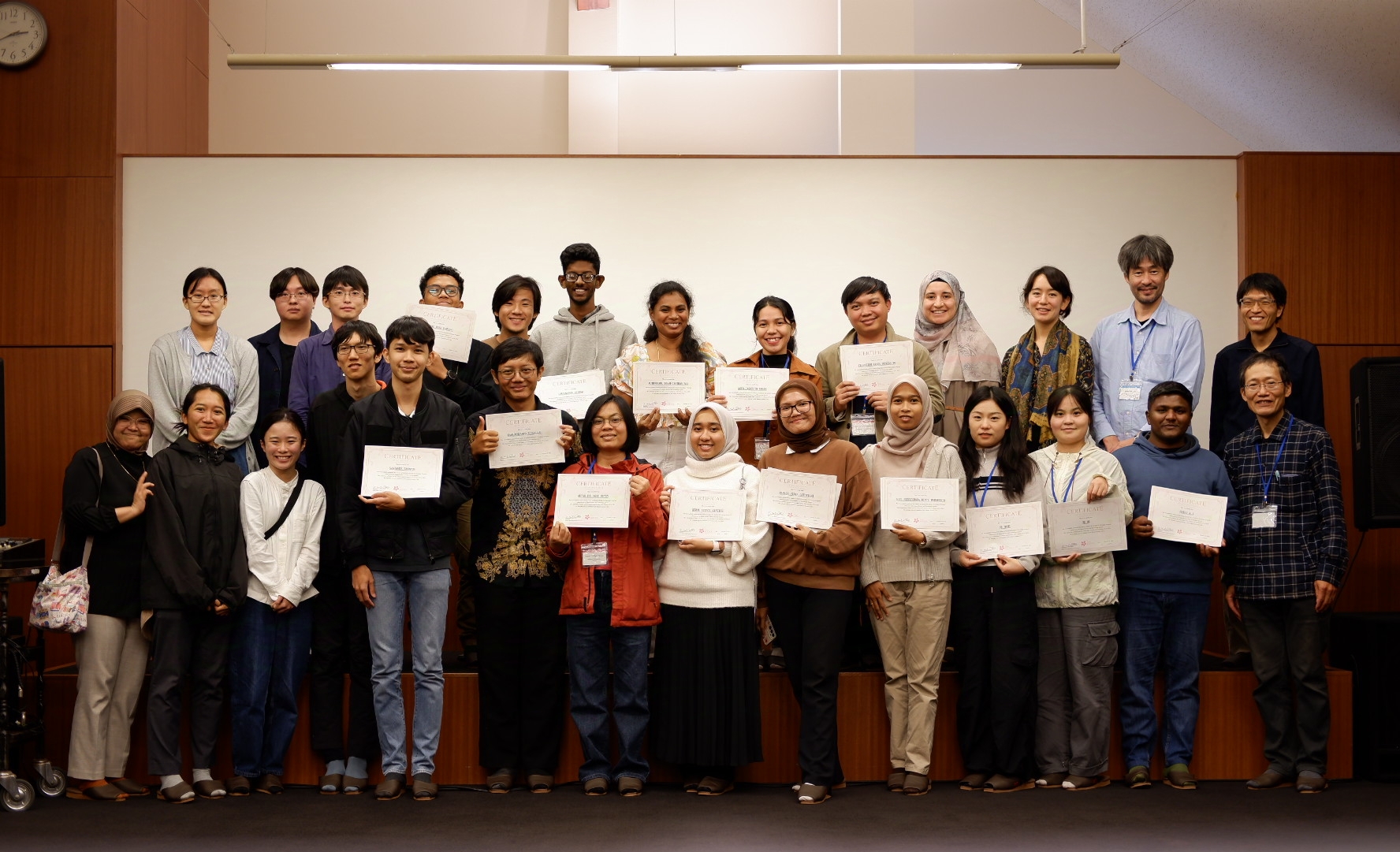
Adding a personal touch to their time in Tokyo, the extended stay allowed Dr. Sintho and M Reza Pahlevi to reconnect with former AGH students in Japan. A mini-reunion took place at Tanashi (Nishi Tokyo shi), where ARC-BRES is located, gathering Dewi Sukma Inderwati (AGH 58, exchange student at Ibaraki University), Rahmadani P. Airlangga (AGH 53, Master’s student at Hokkaido University), and Muh Agust Nur Fathoni (AGH 53, research student at Ibaraki University). They shared dinner at a local soba restaurant, where they exchanged stories, research updates, and words of encouragement, fostering a strong sense of community and motivation.
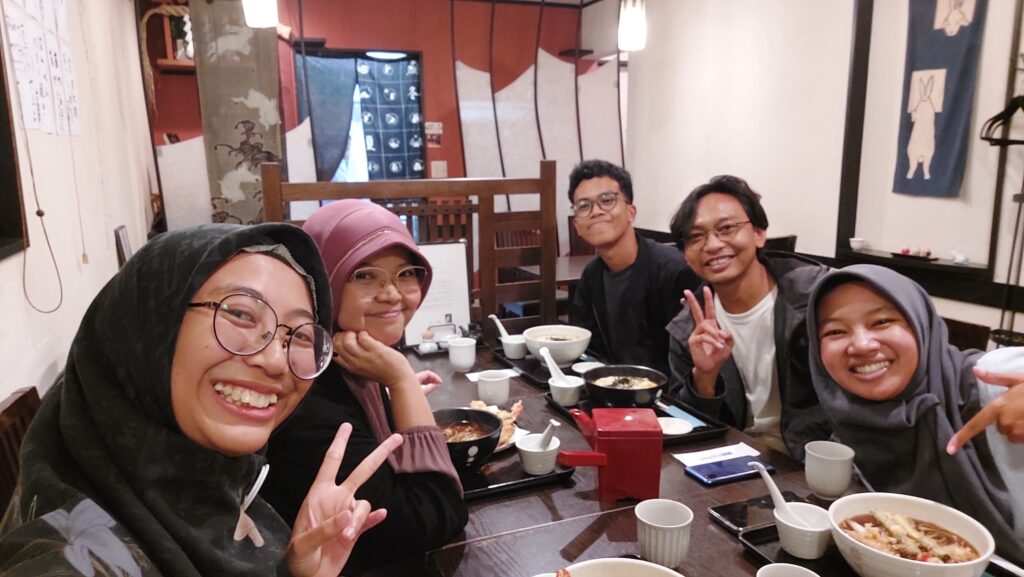
This program has provided students with invaluable experiences in bioresource sciences, collaboration, and cultural exchange, empowering the next generation of scientists to work towards sustainable solutions for shared challenges. Through the SAKURA Science Program, students are not only gaining essential scientific insights but also building international networks that support academic and personal growth across Asia.
[swa]

